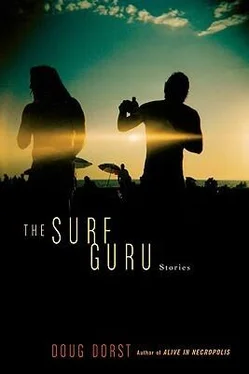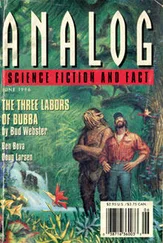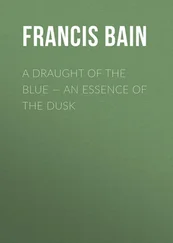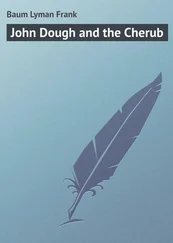I am doubled over in the pain of last night’s drink. The hot air scorches my lungs when I breathe. The shade of the fruit stand is little comfort. Hammers pound and pound from the direction of the square. The construction committee has begun to reassemble the gallows.
I am startled by my daughter’s voice, suddenly close. “Those papayas are lovely,” she says.
Sunlight stabs my eyes when I look up. “I sell good fruit,” I tell her.
Ysela is nearly twenty, tall and slim, with graceful limbs and wide, dark eyes. She is the most beautiful woman anyone in town has ever seen. These are not the foolish words of a proud father, for I am anything but proud of her. Her beauty is simply a fact, just as it is a fact that hyenas can smell carrion from seven miles away through a crosswind. Today she wears a new-looking dress of deep carmine. It does not cover her calves.
She tucks a strand of her long black hair behind her ear. “Yes,” she says. “You do your job well.” I know she says this to make me feel better; she must have heard all the complaints. Even so, I thank her.
“I hope you are well,” she says. “I worry.”
“I do not need your worry,” I say.
“How is Rubén?” she asks.
“The same. Always the same.”
She looks up and down the road, then quickly opens her basket and hands me a bottle of tequila, the best Lars sells. “Tonight, at least, you won’t have to go into the bar,” she says. “I know Lars makes it difficult for you.” I tell her I can buy my own drinks, Lars or no Lars. But I take it from her and hide it behind the stand.
She bites her lip. A habit, when she is anxious. It is the same look she had just before she told me she was going to work in Lars’s back rooms.
I asked her, Have you lost your mind now that your mother is gone?
She said, You can’t control me like you controlled Mama .
Do not talk to me that way. I am your father.
I will talk any way I want to talk. And I will make my money any way I wish.
I will drag you from there and beat sense into you.
I will curse you whenever someone is inside me. Whenever I am fucking.
San Humberto will make you pay.
San Humberto would pay me to fuck Him.
So now, with her lip bitten and her calves exposed, I brace myself for her news. But what she says is not what I expect.
“I want to see Rubén. Will you show me the way?”
“Rubén does not want to see you,” I say. “Not while you work for that man.”
Her eyes narrow, but she says nothing.
“May San Humberto guide you,” I say.
“May He guide you as well,” she says curtly, then turns away. I watch her walk; it is Madalena’s walk, a walk of confidence, even arrogance. In my blurred vision she could be her mother, and I cannot stop watching her.
I do not even notice the two boys making off with all of my lemons until they are halfway to the square. The children are getting bolder these days.
Each day Vargas visits the jail and brings back the same news: Ayala is despondent, El Gris is strangely calm, and the two of them whisper together through the bars. I am filled with questions: Does El Gris have regrets? Does he pray? Is he perhaps conspiring with Ayala, formulating a plan that will let him escape and let our sad friend die in his place? Vargas shrugs and tells me he does not know; the bandit does not speak when anyone but Ayala can hear.
It is too hot to do anything but talk. The rumor today is that Zorrillo, who runs the hyena ranch, has starved the animals for a week; they are so hungry that one of them escaped the pen last night and ate twenty chickens before it was recaptured. People are also talking about the drinks and the meats and the jellies and pies we will share on the rooftops after the run. I want to share their excitement, but the thought of food makes me ill. I realize I have eaten nothing in two days. The heat, the stillness, the flies, the tequila — they have robbed me of my appetite.
I pull my hat over my eyes and pretend to sleep. The children will try to steal again today; they are crazy, and the Festival makes them crazier still. The gun is in my hand, hidden under my shirt. The bell at the schoolhouse rings. I wait. It will not be long.
Through the weave of the straw in my hat, I see the two boys emerge from behind the cobbler’s shop and creep toward my stand. The shorter one pulls a small wagon behind him. A wagon! They are more than bold, I think, more than shameless, more than crazy — they have become animals.
They are within arm’s reach of my oranges before I can make out their faces. The short one is Zorrillo’s son, and the tall one is the son of the town doctor. These are not boys who must steal because they are hungry. The wagon creaks, and they hold still. They are watching to see if I stir. I am patient. I am calm. I am completely still.
But I am up quick and strong as a panther the moment they reach for my fruit. I have the muzzle of the gun pressed into the tall boy’s temple before they can even pull their hands back. It is the fastest I have moved in years. They look at me, mouths open. “You are surprised?” I say. “Surprised that a man will defend his fruit?” I walk out from behind the stand and kick over the wagon. “A wagon? Were you going to steal everything I have?”
The short boy starts to stay something, so I box him in the ear with my free hand. My hand thinks for me. “Shut your mouth,” I say. “Do you know what San Humberto does to boys like you?” I hit him again. I see tears in his eyes. I feel tears in mine. “Go home now,” I say, “and tell your fathers what you have done.” I lower the gun. “Now leave me alone.” I do not want them to see an old man cry.
They are slow to move, so I hit the tall one. “Go!” I yell, and they run. I sit and wipe my eyes with my shirt. I am so tired.
Late in the afternoon, their fathers come to the stand to pay for all the fruit the boys stole. Zorrillo holds out a sackful of coins, then pulls it away when I reach for it. “In the future I would prefer that you not threaten children with your gun,” he says.
“In the future I would prefer that children not steal my fruit,” I say, and I wait for him to hand over what is mine.
Some nights I dream about forgiveness. I do not mean that I dream about people forgiving people. I dream about forgiveness itself, curling around buildings and nuzzling people like the cool west winds. Vargas does not believe me. He says you cannot dream about something you cannot see or touch or hear or taste or smell.
I have not told Vargas this, but when I dream, forgiveness has a smell. Forgiveness smells like limes.

On the day of the Festival, I close the stand early so I can visit Rubén before the run. As I pack away my stock, I sense someone nearby watching me and I look up. I do not know if it is the heat or the hangover or my bad eyes, but for an instant I see Ysela standing hand in hand with her mother. But no, it is my daughter, alone.
She holds out a pair of eyeglasses. “I found them among Mamá’s things,” she says. “I think they’re yours.”
“Perhaps,” I say, although I know they are.
My eyesight has gotten worse, but the old lenses work well enough. The gallows in the square comes into focus. I feel my eyes shift again, and now I can see all the way to the east gate. I turn to Ysela, and I see thin, shallow wrinkles in her forehead that I have never noticed before. It makes me sad, to see my daughter look as if she worries so much. But she has chosen the path she has chosen. I cannot blame myself.
Читать дальше













